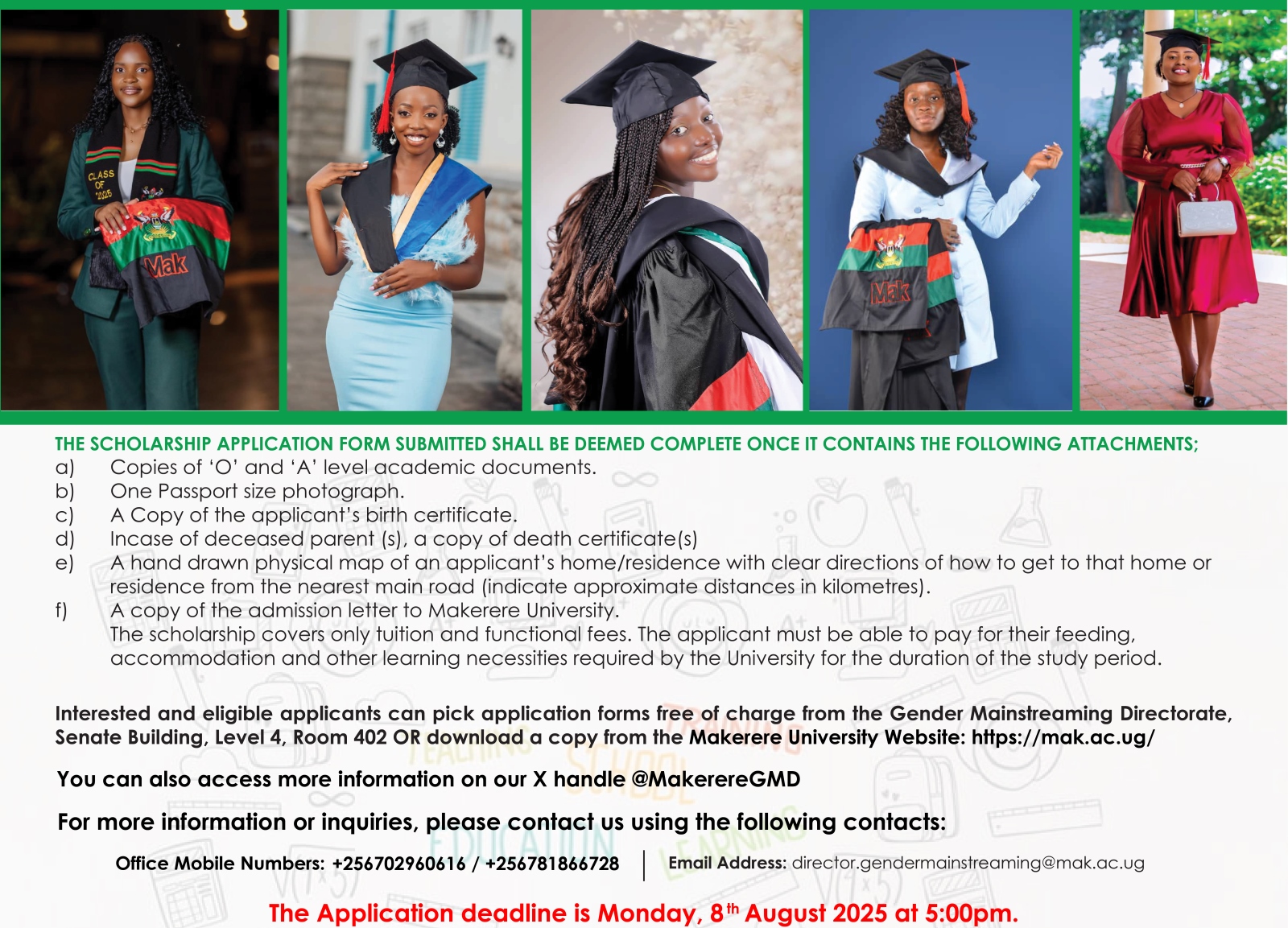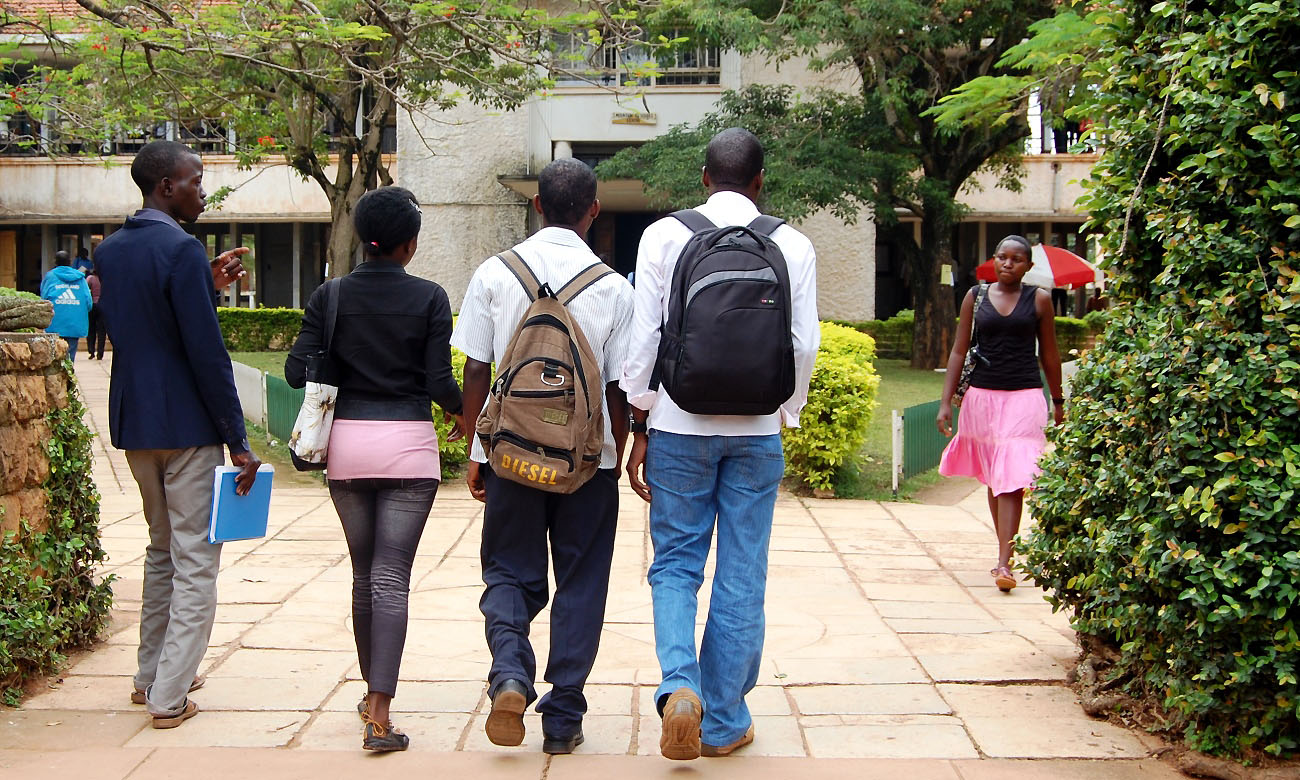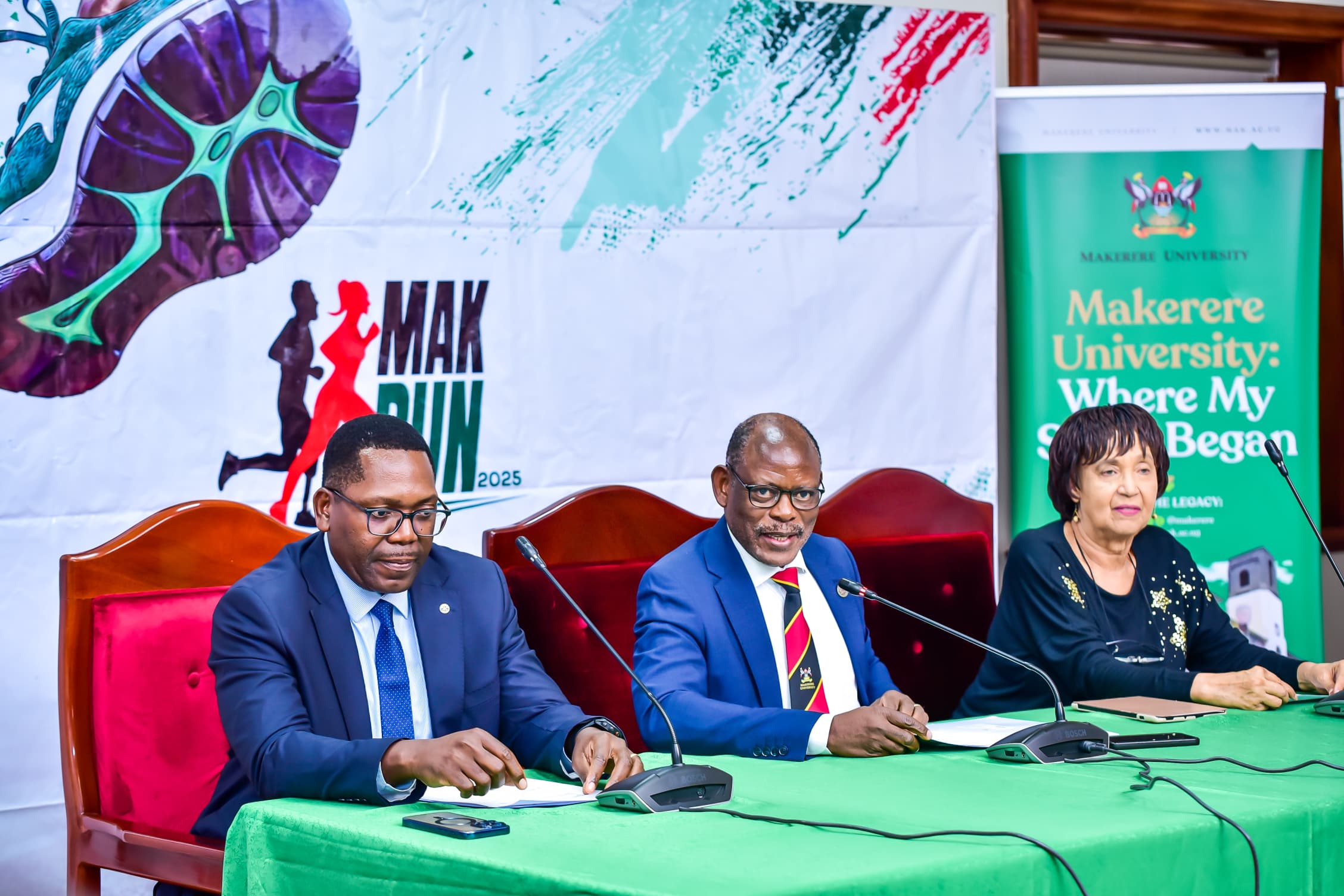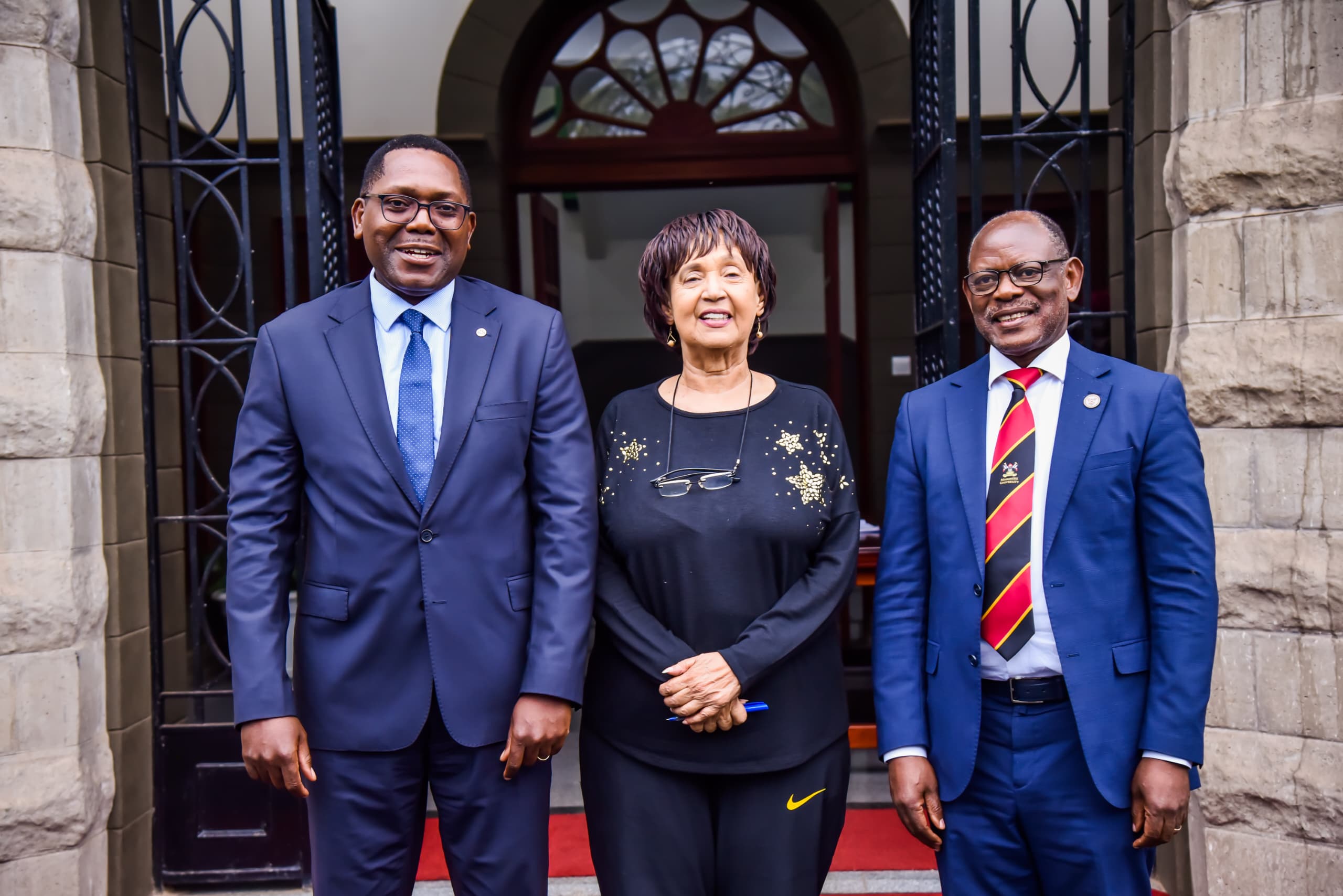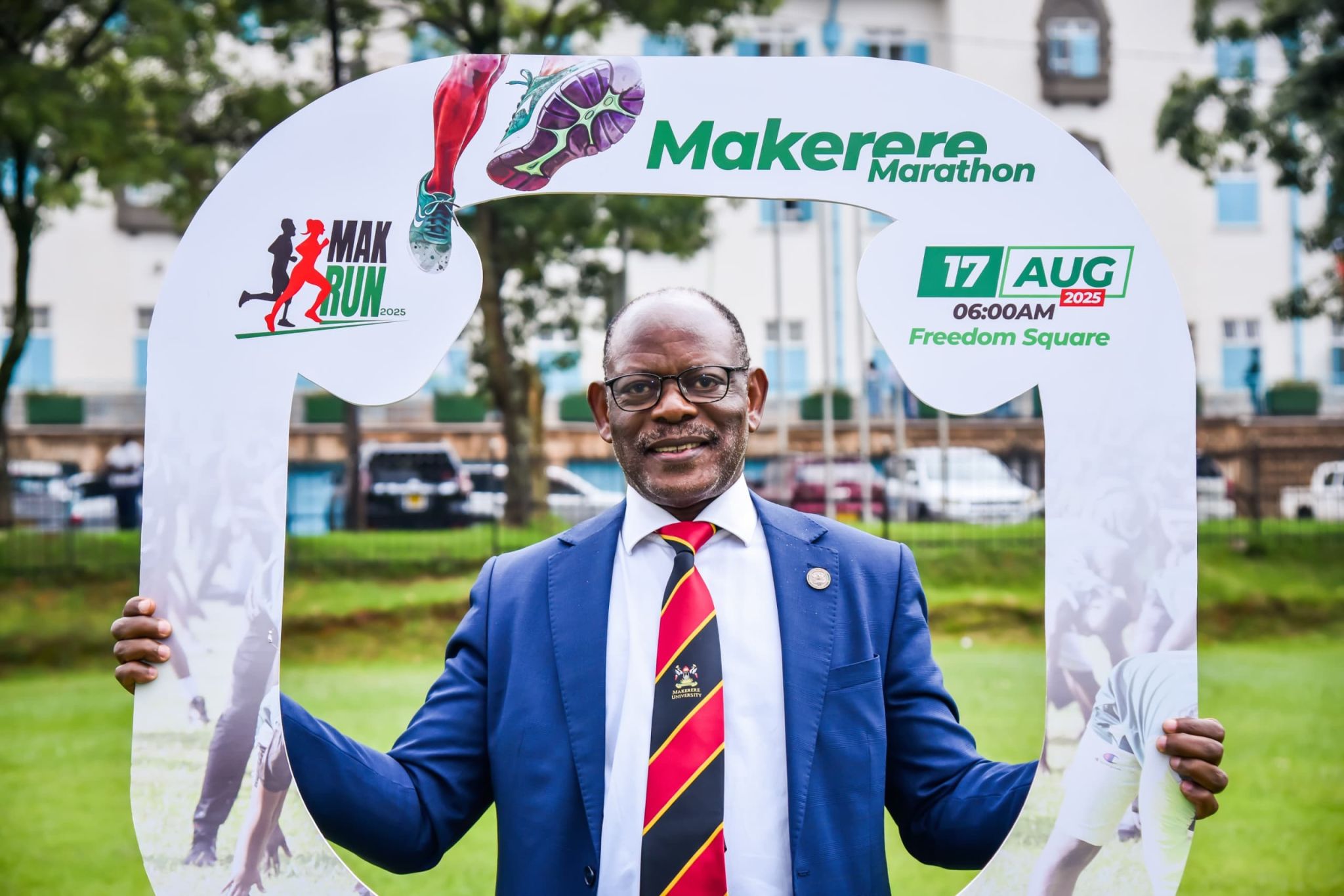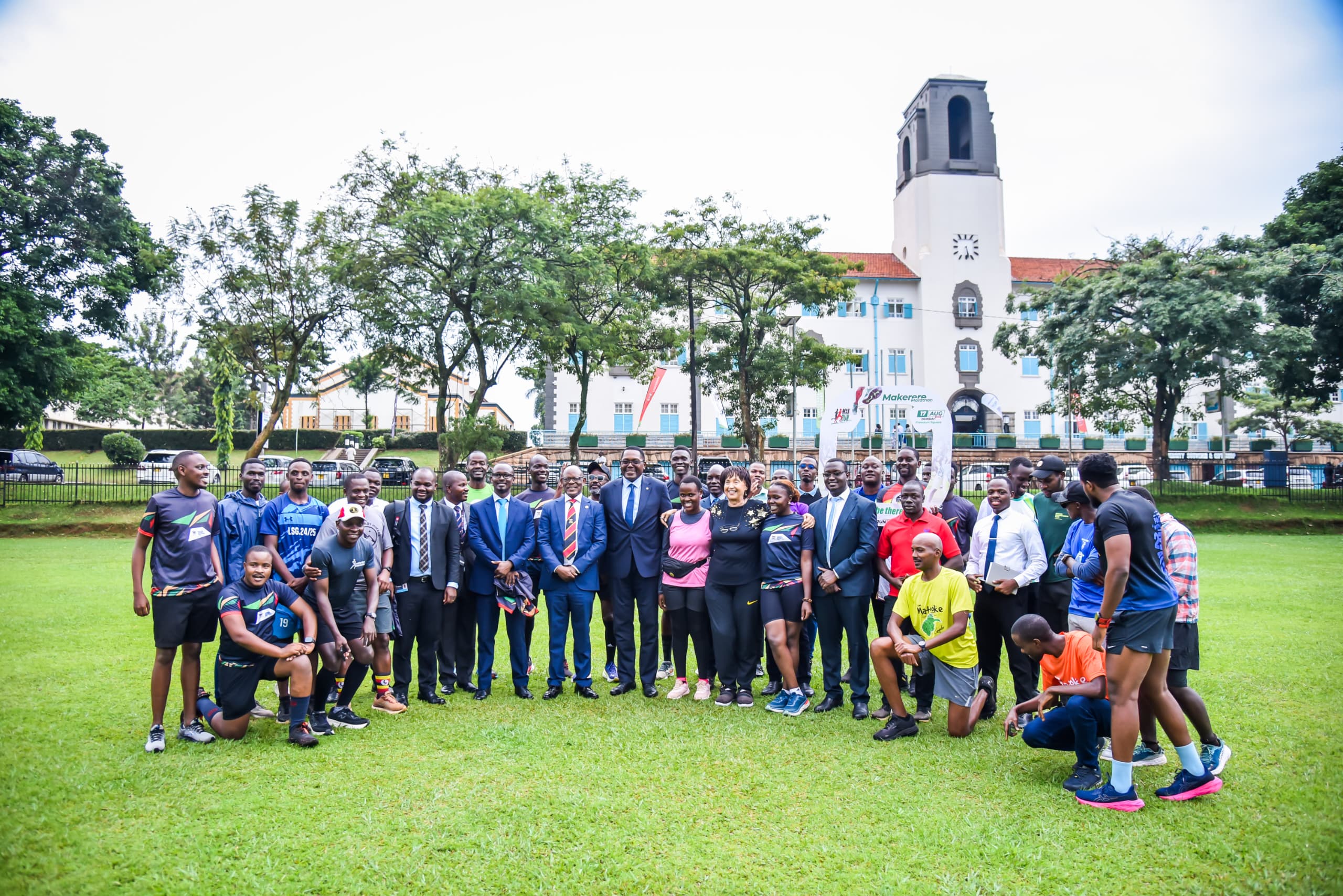The Academic Registrar, Makerere University invites applications from Diploma Holders only for admission under the Government Sponsorship Scheme (not exceeding 5% of the intake capacity) to the University Degree Programmes in the document attached, for the 2023/2024 Academic year.
Each applicant should possess at least a Credit or Second Class or equivalent Diploma in a relevant field from a recognised Institution plus a Uganda Certificate of Education (UCE) with at least 5 Passes (or its equivalent) and a Uganda Advanced Certificate of Education (UACE) with at least One Principal Pass and Two Subsidiary Passes obtained at the same sitting (or its equivalent).
A non-refundable application fee of Shs.50,000/ = (Fifty thousand shillings only) plus the Bank Charge using a Payment Reference Number (PRN) generated from Academic Management Information System (ACMIS) should be paid to any bank used by Uganda Revenue Authority(URA) before submitting a system generated application form to the Admissions Office, Room 315 Level 3, in the Senate Building, Makerere University.
Certified copies of Diploma Transcripts (not photocopies of certified copies) from the awarding Institutions must be attached to the application forms. Incomplete application forms shall not be processed. Details of the Diplomas required for each programme can be viewed on Undergraduate Admissions Notice Board on Level 3, Senate Building, Makerere University and the University website (Click here).
NB: Candidates will be responsible for verification of their academic documents from the awarding Institutions after admission.
Each applicant should also attach a copy of the Birth Certificate to the application form.
The closing date for returning the system generated application forms to the University was extended to Friday 17th March 2023.
Candidates are warned against submitting forged academic documents as this will lead to automatic cancellation of admission, revocation of award where applicable and prosecution in the Courts of Law.
Note that:
(i) Candidates whose Ordinary and Advanced level results are of Grades “Y”, ” Z” “7” and “9” need not apply because they are not eligible for admission. and:
(ii) Candidates who possess 3rd Class or Pass Diplomas need not apply.
COLLEGE OF HEALTH SCIENCES (CHS)
CODE PROGRAMME
- MAM Bachelor of Medicine and Bachelor of Surgery
- BDS Bachelor of Dental Surgery
- PHA Bachelor of Pharmacy
- BMR Bachelor of Science in Medical Radiography
- BEH Bachelor of Environmental Health Science
- BBI Bachelor of Science in Biomedical Engineering
- BYT Bachelor of Cytotechnology
- NUR Bachelor of Nursing Science
- BSL Bachelor of Science in Speech and Language Therapy
- BPT Bachelor of Optometry
COLLEGE OF AGRICULTURAL AND ENVIRONMENTAL SCIENCES (CAES)
CODE PROGRAMME
- AGR Bachelor of Science in Agriculture
- FST Bachelor of Science in Food Science and Technology
- AGE Bachelor of Science in Agricultural Engineering
- AGM Bachelor of Agribusiness Management
- BAR Bachelor of Agricultural and Rural Innovation
- HUN Bachelor of Science in Human Nutrition
- BOF Bachelor of Science in Forestry
- BTH Bachelor of Science in Tourism and Hospitality Management
- BBP Bachelor of Science in Bio-Processing Engineering
- BWE Bachelor of Science in Water and Irrigation Engineering
- BGS Bachelor of Geographical Sciences
COLLEGE OF ENGINEERING DESIGN ART AND TECHNOLOGY (CEDAT)
- ARC Bachelor of Architecture
- LSG Bachelor of Science in Land Surveying and Geomatics
- ELE Bachelor of Science in Electrical Engineering
- CIV Bachelor of Science in Civil Engineering
- MEC Bachelor of Science Mechanical Engineering
- SQS Bachelor of Science in Quantity Surveying
- SLE Bachelor of Science in Land Economics
- BFA Bachelor of Fine Art
- BID Bachelor of Industrial Art and Applied Design
COLLEGE OF BUSINESS AND MANAGEMENT SCIENCES (COBAMS)
- STA Bachelor of Statistics
- ECO Bachelor of Arts in Economics
- COE Bachelor of Commerce
- ADM Bachelor of Business Administration
- BQE Bachelor of Science Quantitative Economics
- BPS Bachelor of Science in Population Studies
COLLEGE OF HUMANITIES AND SOCIAL SCIENCES (CHUSS)
- MUS Bachelor of Arts in Music
- BDF Bachelor of Arts in Drama and Film
- SOW Bachelor of Social Work
COLLEGE OF NATURAL SCIENCES (CONAS)
- SCP Bachelor of Science (Physical)
- SCB Bachelor of Science (Biological)
- SEC Bachelor of Science (Economics)
- BIC Bachelor of Science in Industrial Chemistry
- BFS Bachelor of Science in Fisheries and Aquaculture
- BSP Bachelor of Sports Science
- BCB Bachelor of Science in Conservation Biology
- BPG Bachelor of Science in Petroleum Geo-science and Production
- BBT Bachelor of Science in Biotechnology
COLLEGE OF COMPUTING AND INFORMATION SCIENCES (COCIS)
- CSC Bachelor of Science in Computer Science
- BSW Bachelor of Science in Software Engineering
- IST Bachelor of Information Systems and Technology
- LIS Bachelor of Library and Information Science
COLLEGE OF VETERINARY MEDICINE, ANIMAL RESOURCES & BIOSECURITY (COVAB)
- VET Bachelor of Veterinary Medicine
- MLT Bachelor of Biomedical Laboratory Technology
- BAP Bachelor of Animal Production Technology and Management
SCHOOL OF LAW (SOL)
NB: All applicants for Bachelor of Laws must have sat and passed the Pre-entry examinations set by Makerere University. The advertisement for Bachelor of Laws Pre entry examinations will come out in March, 2023.
MAKERERE UNIVERSITY BUSINESS SCHOOL (MUBS)
- COM Bachelor of Commerce
- BBD Bachelor of Business Administration
- BIB Bachelor of International Business
- BLH Bachelor of Leisure and Hospitality Management
- BES Bachelor of Entrepreneurship & Small Business Management
- BBC Bachelor of Business Computing
- BIM Bachelor of Office and Information Management
- PSM Bachelor of Procurement and Supply Chain Management
1. HOW TO APPLY
Application will be online using the ACMIS System. Generate a pay reference number using the ACMIS System. Applicants will have to submit original certified copies of their Diploma transcripts and certificates and a passport size photograph to Office 315 Level 3, Senate Building after payment of application fees.
2. MAKERERE UNIVERSITY ONLINE APPLICATION PORTAL USERGUIDE
1. Applicants should access the Institution’s Admissions URL http://apply.mak.ac.ug
2. Signup using full name, e-mail and Mobile Number. Please note that your name must be similar to the one on your supporting academic documents
3. A password will be sent to both your e-mail and mobile number.
4. The system will prompt you to change the password to the one you can easily remember.
5. To fill a form (all form sections must be filled) the applicant clicks on the APPLY NOW button displayed on the running scheme.
6. Obtain a payment reference number (PRN) after submitting the application form
7. Make a payment at any of the Banks used by Uganda Revenue Authority URA.
8. Print the filled form and attach certified copies of your academic documents.
WARNING
(i) Applicants are strongly warned against presenting forged or other people’s academic documents to support their applications for admission. The consequences, if discovered, are very grave indeed.
(ii) Do not buy any other documents not originating from the Academic Registrar’s Office. Those who buy them do so at their own risk.
(iii) The Academic Registrar has not appointed any agents to act on his behalf to solicit for additional funds other than the application fee stated above.
Other details about the advert can be accessed by following this link.
Prof. Buyinza Mukadasi
ACADEMIC REGISTRAR
DATE: 9th January 2023
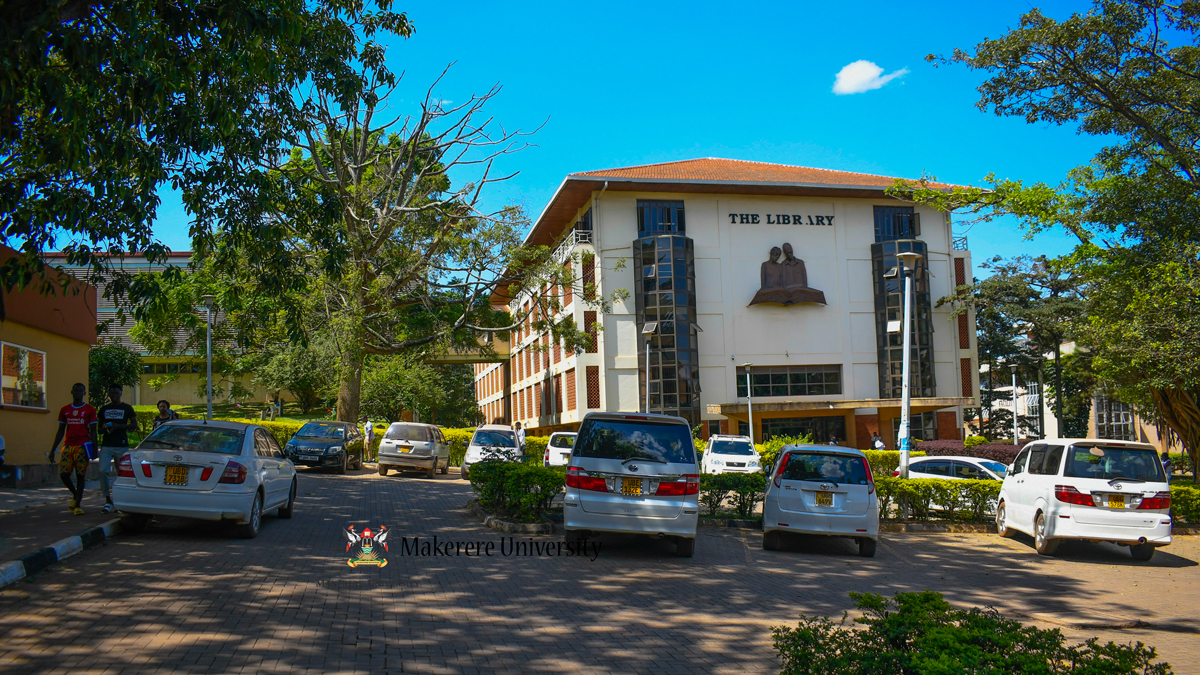

 Education1 week ago
Education1 week ago
 General2 weeks ago
General2 weeks ago
 General6 days ago
General6 days ago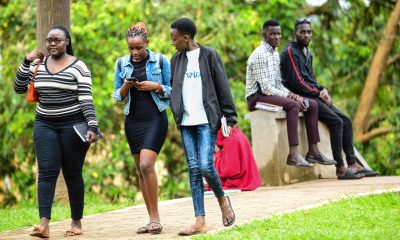
 General2 weeks ago
General2 weeks ago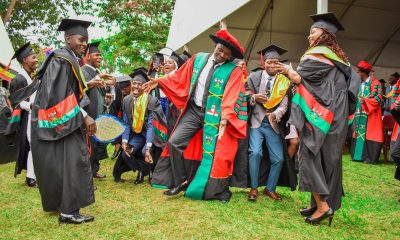
 General2 weeks ago
General2 weeks ago
